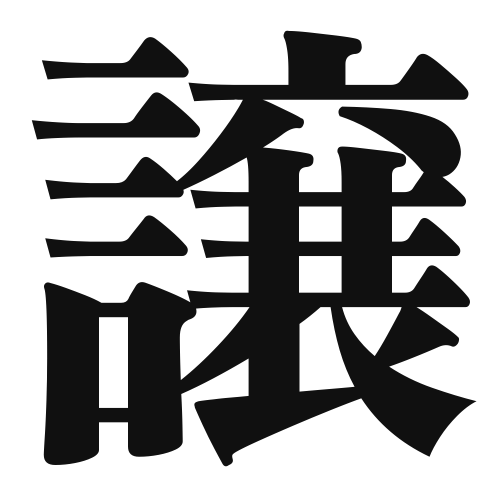1. Overview of Meaning
The kanji “譲” (yō) means “to yield,” “to give up,” or “to transfer.” It conveys the idea of allowing someone else to take something or giving way in a situation.
2. Formation and Radical
Formation of the Kanji: The kanji “譲” is a compound character, which combines the phonetic component “言” (to speak) and the semantic component “ジョウ” (to yield). This suggests a meaning related to communication and the act of yielding or giving.
Radical: The radical of “譲” is “言” (gen), which relates to speech or words, indicating that the act of yielding often involves communication.
3. Examples of Usage
Common Words and Phrases:
- 譲渡 (じょうと, jōto) – transfer
- 譲歩 (じょうほ, jōho) – concession
Example Sentences in Daily Conversation:
- 彼は席を譲ってくれました。 (かれはせきをゆずってくれました。) – He gave up his seat for me.
- この問題については譲歩が必要です。 (このもんだいについてはじょうほがひつようです。) – A concession is necessary regarding this issue.
4. Synonyms and Antonyms
Similar Kanji:
- 譲る (ゆずる, yuzuru) – to yield or to give up (more direct action)
- 贈る (おくる, okuru) – to give (as a gift, with a different nuance)
Antonyms:
- 奪う (うばう, ubau) – to take away or to seize (opposite meaning)
5. Cultural and Historical Background
Relation to Japanese Culture: The concept of yielding or giving way is deeply rooted in Japanese culture, which values harmony and consideration for others. This is reflected in social interactions and etiquette.
Proverbs and Idioms:
- 譲り合い (ゆずりあい, yuzuriai) – mutual yielding, emphasizing cooperation and understanding in relationships.
